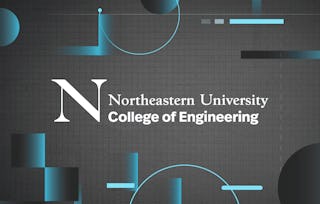In this course learners will gain a solid understanding of the entire software development lifecycle (SDLC) and essential development practices. Through lessons on requirement analysis, and system design, learners will engage with gathering and documenting project requirements effectively to design system architecture. Learners will explore various software development methodologies such as Waterfall, Agile, and DevOps, understanding how each shapes the development process. In lessons on implementation, learners will explore programming best practices, testing, and debugging techniques, enabling them to write clean, maintainable code and effectively identify and resolve issues. Learners will also explore version control with Git, including setting up repositories, managing branches, and collaborating with team members, ensuring they have the necessary skills to work efficiently in real-world development environments.

Application Development

Application Development
This course is part of Amazon Junior Software Developer Professional Certificate

Instructor: Amazon
4,418 already enrolled
Included with
36 reviews
Recommended experience
What you'll learn
Implement and document a requirements analysis and define system components using diagramming tools.
Discuss different software methodologies.
Implement version control by creating and managing Git repositories.
Skills you'll gain
- Software Development Methodologies
- Software Engineering
- Functional Requirement
- Requirements Analysis
- Git (Version Control System)
- Spring Framework
- Java
- Unified Modeling Language
- Application Design
- Technical Design
- Systems Development
- Agile Methodology
- Application Development
- Version Control
- Debugging
- Software Development Life Cycle
- Software Testing
- User Requirements Documents
- JUnit
- Agile Software Development
Details to know

Add to your LinkedIn profile
10 assignments
See how employees at top companies are mastering in-demand skills

Build your Software Development expertise
- Learn new concepts from industry experts
- Gain a foundational understanding of a subject or tool
- Develop job-relevant skills with hands-on projects
- Earn a shareable career certificate from Amazon

There are 6 modules in this course
This module equips learners with essential skills to plan and design successful software projects. Explore the process of gathering and analyzing requirements, distinguishing between iteration and increment, and crafting user stories. They will learn to design with UML diagrams, wireframes, mockups, and software patterns while understanding system architecture and user experience principles. Through hands-on activities and real-world scenarios, learners will practice identifying requirements, implementing design patterns, and creating intuitive user interfaces. By the end of this module, they’ll be ready to turn ideas into well-structured, impactful software solutions.
What's included
15 videos13 readings4 assignments2 ungraded labs
This module provides a comprehensive overview of software development methodologies, equipping the learner with the knowledge to manage projects effectively. Explore the stages of the Software Development Life Cycle (SDLC) and learn to compare models like Waterfall, Agile, and Spiral to choose the right fit for various projects. Dive deeper into Agile frameworks such as Scrum and Kanban, understanding their principles, use cases, and practices like sprints and retrospectives. Discover methodologies like Rapid Application Development (RAD) and DevOps, emphasizing flexibility, collaboration, and efficiency in delivering high-quality software. With practical activities and real-world examples, this module prepares you to align methodology with project needs and deliver successful software solutions.
What's included
7 videos3 readings1 assignment
This module focuses on the essential practices and tools required for implementing and maintaining software effectively. Explore challenges like code maintainability, debugging, and long-term stability, and learn how clean code principles and proper documentation can streamline development. Master key implementation techniques such as debugging with breakpoints, testing application layers using JUnit, and managing environment-specific configurations with Spring Profiles. Delve into software testing methods and discover how SLF4J logging enhances monitoring and troubleshooting in real-world applications. Through hands-on activities and guided examples, this module equips the learner with the skills to implement robust, maintainable, and well-tested software solutions.
What's included
5 videos7 readings3 assignments5 ungraded labs
This module introduces the essential concepts and practices of version control, equipping the learner with the skills to manage and collaborate on software projects effectively. Learn the benefits of version control systems like Git, including tracking changes, investigating issues, and enhancing team collaboration. Explore the fundamentals of Git and GitHub, from setting up repositories and cloning them to performing key operations like adding, committing, pushing, and pulling changes. Gain hands-on experience in working with repositories and understand how Gitflow facilitates seamless collaboration among developers through branching workflows. With practical examples and activities, this module ensures the learner is well-prepared to implement version control best practices in real-world projects.
What's included
7 videos3 readings1 assignment2 ungraded labs
This module is the culmination of the learning journey, where the learner will apply the knowledge and skills gained throughout the course to improve a comprehensive software application. Begin with a recap of key course concepts, then dive into an exciting hands-on project that challenges you to identify requirements, implement design patterns, write clean code, create unit tests, and leverage advanced Java features like custom exceptions and SLF4J logging. They’ll work with a provided Spring Web App codebase, adapt and expand it to meet project requirements, and document your approach. The module emphasizes best practices in software development, including architectural patterns, effective collaboration using Git, and real-world application design. Engage with a walkthrough of the project solution, reflect on your learning experience, and take a comprehensive course quiz to validate their knowledge. This module not only reinforces their expertise but also prepares them to tackle professional development projects with confidence.
What's included
3 videos2 readings1 assignment1 ungraded lab
This module equips the learner with the tools, insights, and strategies needed to excel in technical interviews and advance their career in software development. Begin by exploring the diverse career paths in software development, from front-end and back-end roles to full-stack positions, and understand the responsibilities of each specialization. Learn what to expect in technical interviews, including problem-solving challenges, coding assessments, and behavioral questions. Get hands-on experience with an Amazon-style coding challenge and practice behavioral interview scenarios through quizzes and simulations. Gain insights into Amazon’s leadership principles and SDE interview processes to prepare for opportunities with one of the world’s leading tech companies. They’ll also receive guidance on refining their resume and sharing their achievements, such as Coursera Certificate, to enhance their professional profile. By the end of this module, they’ll be well-prepared to navigate the technical hiring process and stand out as a strong candidate in the software development field.
What's included
3 videos6 readings
Earn a career certificate
Add this credential to your LinkedIn profile, resume, or CV. Share it on social media and in your performance review.
Explore more from Software Development
 Status: Free Trial
Status: Free TrialNortheastern University
 Status: Free Trial
Status: Free TrialLearnQuest
 Status: Free Trial
Status: Free TrialImperial College London
 Status: Preview
Status: PreviewNortheastern University
Why people choose Coursera for their career

Felipe M.

Jennifer J.

Larry W.

Chaitanya A.

Open new doors with Coursera Plus
Unlimited access to 10,000+ world-class courses, hands-on projects, and job-ready certificate programs - all included in your subscription
Advance your career with an online degree
Earn a degree from world-class universities - 100% online
Join over 3,400 global companies that choose Coursera for Business
Upskill your employees to excel in the digital economy
Frequently asked questions
This Professional Certificate is designed for aspiring junior software developers who are looking to kickstart their careers in the tech industry. It is also for current professionals that are seeking greater understanding of software development fundamentals.
This program is for you:
- If you are interested in the field of software development or just beginning to work in junior software development roles.
- If you want to switch or start a career in the field of software development
- If you already work in software development and are seeking a greater understanding of software development fundamentals, earning an Amazon software development certificate can help advance your career or help you address gaps in your knowledge, skills, and abilities.
While prior coding experience is beneficial, it's not mandatory. A basic understanding of programming concepts and a willingness to learn are recommended.
The primary advantage lies in acquiring practical skills and knowledge essential for launching a career as a junior software developer. This Professional Certificate not only equips you with the expertise needed for entry-level roles but also provides a recognized certification, bolstering your credibility within the industry. This credential offers hands-on learning experiences under the guidance of seasoned professionals.
A junior software developer usually supports software application design, development, and maintenance while receiving guidance from senior developers, making them suitable candidates for internships or apprenticeships.
More questions
Financial aid available,

